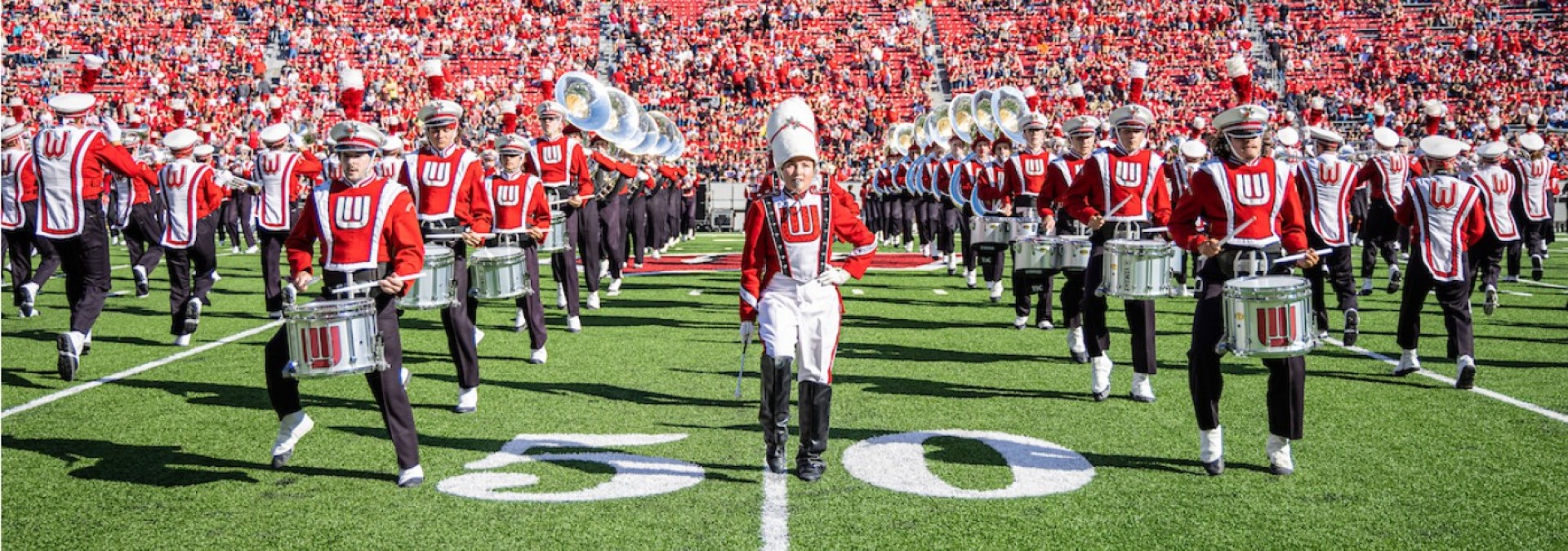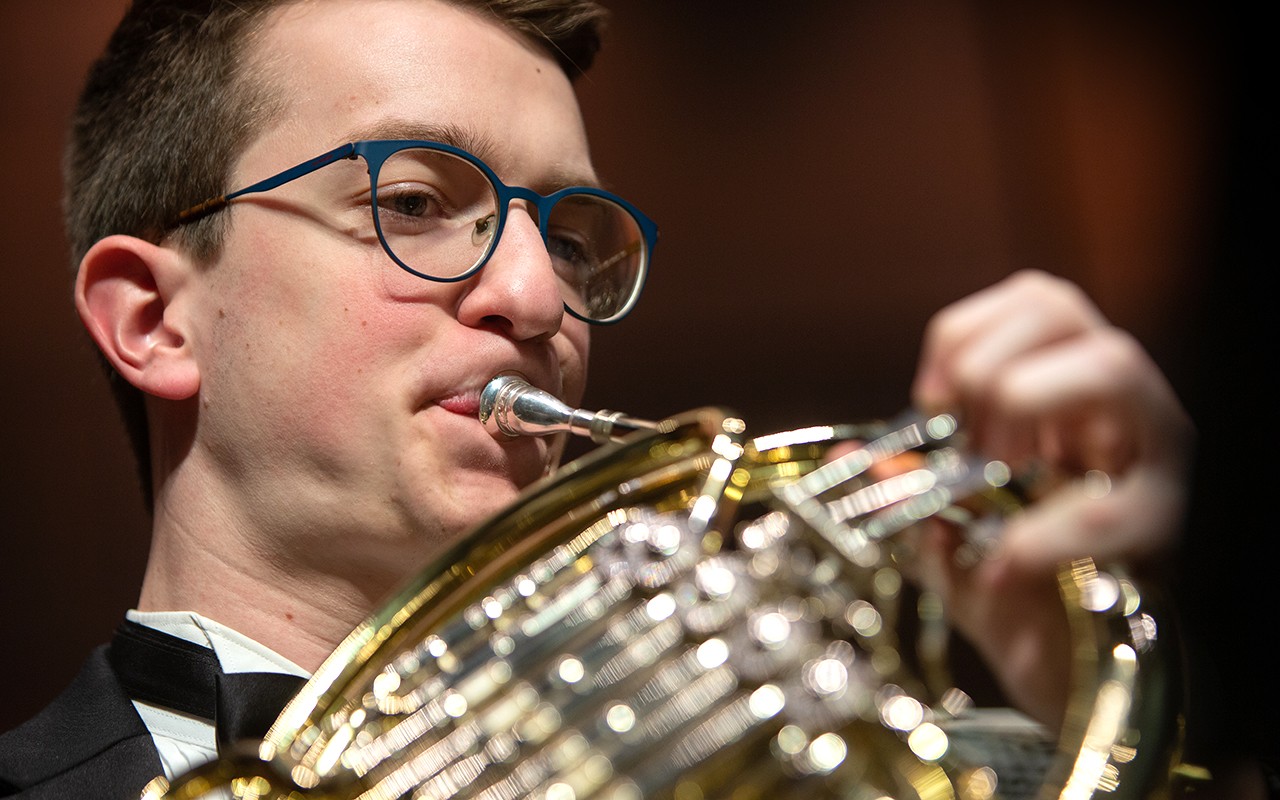Double the Passion, Double the Possibilities: A Music Student's Guide to Double Majoring
Explore how combining music with another field can open doors to exciting career opportunities.
Read More
Accoladi.com is for performing arts students and their families. We connect student artists with the opportunities they deserve.
We also support collegiate and summer enrichment recruiters, music teachers, and fine arts directors. To make sure everyone finds the right home, we've created dedicated websites for each community:
Students and parents: this is your home base, so please continue registering here on Accoladi.com.
Everyone else: begin your journey at the site tailored to your role.
.png)
For every student who’s ever panicked at midnight the night before their audition and Googled “What does Allegro mean?”—this one’s for you.
At a university audition in Texas, a professor asked a surprising question during the interview: “What musical term best describes you as a person?”
The student paused, then replied, “Sforzando.”
“I attack every opportunity with force,” he said. “But I also know when to back off and listen to those who know more than me — like each of you on this panel.”
That one answer made the student unforgettable. And it proved a simple truth: knowing musical terms isn't just about theory or vocabulary. It's about understanding music deeply enough to make it your language.
Sure, pitch and rhythm get a lot of attention in music. But the words on your sheet — those sometimes confusing, often Italian terms — shape how a piece is played. They give music its mood, emotion, and identity.
In college auditions, schools often test your understanding of musical terms. Not just to see if you memorized them, but to find out if you can apply them, interpret them, and use them to bring a piece to life.
Different colleges have different ways of testing term knowledge. Here are a few:
Yes, it helps to know what "forte" and "adagio" mean. But auditions go deeper. Professors want to see how you think as a musician. Can you recognize the difference between "mezzo-piano" and "piano" in your phrasing? Can you shift your tone or tempo based on the markings? Can you connect the dots between what you read and how you play?
Some even test you in conversation. One professor might ask, “Why do you think this composer chose to use staccato here?” Another might want to hear how you'd describe your playing style using a musical term. Be ready.
Here’s how you can build your musical term fluency:
Understanding musical terms isn't just about passing a test. It's about showing who you are as a musician. It's about communication, interpretation, and making music that means something.
And sometimes, it's about telling a panel, with confidence and creativity, that you're a "sforzando" kind of student — ready to go all in.
So study the notes. But don't skip the words. They just might be the reason you get accepted: Bravissimo!
.png) ARTICLE GLOSSARY
ARTICLE GLOSSARY
Adagio: A slow tempo, meaning the music should be played slowly and gracefully.
Allegro: A fast, lively tempo. Think upbeat or energetic music.
Andante: A walking pace tempo; not too fast, not too slow.
Articulation: How a note is played or sung (e.g., short, smooth, accented).
Audition Panel: A group of music professionals (often college professors) who listen to a student’s audition to evaluate their musical skills.
Baritone: A medium-low male voice, between tenor and bass.
Bass: The lowest male singing voice.
Composer: A person who writes music.
Crescendo: A gradual increase in volume.
Dynamics: The volume of the music, from very soft to very loud.
Forte: Loud; a dynamic marking that tells the performer to play or sing with strength.
Fortissimo: Very loud.
Fortississimo: Extremely loud; one of the highest dynamic markings.
Grave: Very slow and solemn in tempo.
Interpretation: How a performer expresses the music through dynamics, phrasing, and tempo.
Key: The scale on which a piece of music is based; affects the overall “sound” or mood of the piece.
Lento: Slow tempo, similar to “Adagio,” but sometimes even slower.
Mezzo-Forte: Moderately loud.
Mezzo-Piano: Moderately soft.
Pianissimo: Very soft.
Pianississimo: Extremely soft; the quietest level of dynamics.
Piano: Soft; a quiet dynamic marking.
Presto: Very fast tempo.
Score: The written music that shows all the notes, dynamics, and instructions for a performance.
Sforzando: A strong, sudden accent or emphasis on a note or chord.
Sightreading: Playing or singing a piece of music for the first time without having practiced it beforehand.
Soprano: The highest female voice type.
Staccato: Short, detached notes.
Tempo: The speed of the music (e.g., slow, medium, fast).
Tenor: A high male singing voice, just below the countertenor and above the baritone.
Voice Parts: The categories of vocal ranges, such as soprano, alto, tenor, and bass.
Objective: Students will identify and define basic musical terms related to dynamics, tempo, and vocal ranges. They will learn to group terms into categories and explain how each term changes the way music is performed or heard.
Rationale: Middle school is the perfect time to help students begin thinking like musicians—not just playing notes, but understanding the language behind them. This lesson builds vocabulary and listening skills, helping students connect musical terms to real-life music-making.
Teacher Talking Points:
“Being a musician is about more than just playing notes. It’s about *understanding* what those notes are supposed to do—how fast, how loud, and what kind of energy to bring. Let’s build our musical vocabulary so we can play, sing, and listen like real performers.”
📚 Student Activity:
Title: Match It, Group It, Use It!
Instructions:
Terms to Categorize:
Andante, Tenor, Forte, Pianissimo, Grave, Soprano, Mezzo-Piano, Moderato, Lento, Alto, Fortississimo, Allegro, Baritone, Piano, Presto, Fortissimo, Adagio, Bass, Mezzo-Forte, Pianississimo, Vivace
Objective: Students will demonstrate the ability to group and sequence musical terms based on their function (Dynamics, Tempo Markings, and Voice Parts), and articulate the differences among similar terms to enhance performance understanding.
Rationale: In preparation for college auditions, students must go beyond simple memorization of terms. They must recognize, categorize, and interpret musical vocabulary in a way that informs their performance. This exercise encourages critical thinking, terminology fluency, and practical application—all essential for success in auditions and ensemble leadership.
Teacher Talking Points:
“Knowing the definitions of music terms is a great start, but true musicianship means understanding what those terms *mean* for your sound, your expression, and your decisions. This activity helps you break down, group, and use terminology in ways that make your rehearsals and auditions stronger.”
📚 Student Assignment:
Title: Mastering the Language of Music
Instructions:
Terms to Categorize:
Andante, Tenor, Forte, Pianissimo, Grave, Soprano, Mezzo-Piano, Moderato, Lento, Alto, Fortississimo, Allegro, Baritone, Piano, Presto, Fortissimo, Adagio, Bass, Mezzo-Forte, Pianississimo, Vivace
Dear _________________ Parents
If I had to describe myself using a musical term, I’d probably go with “mezzo-forte.” I’m not too loud (well… unless we're running late to the warm-up room), not too soft (unless it’s Monday morning), but just right to lead your incredible students through another year of music-making.
This week, our students are learning that music is more than just notes on a page. They’re diving into an important article called “More Than Notes: How Musical Terms Can Set You Apart at Auditions.” It’s an eye-opener, especially for those dreaming of scholarships, college ensembles, or just wanting to understand what “Andante” or “Pianissimo” really mean — beyond flashcards.
What I love about this article is that it makes the case for why terms like Allegro, Forte, and Grave aren’t just fancy Italian words — they’re part of how a student communicates emotion, personality, and maturity in their performance. And some colleges? They’re testing this knowledge in pretty creative ways (yes, even swapping out terms in your child’s sheet music mid-audition — it’s wild!).
If you’re a parent who wants to better understand what your child is preparing for — or if you’re simply curious about how musical terminology connects to real-world audition experiences — I highly encourage you to read the article with them. It might even spark some dinner table fun. (“So... which musical term describes YOU?”)
Let’s keep learning, playing, and growing — one term at a time.
With a mezzo-forte kind of enthusiasm,
Musically Yours,
_____________________________________________________
Director’s Name and Position
____________________________________________________________________
School Name
Start your college journey with confidence!
Browse our library of helpful articles and directories made just for performing arts students and their families. Whether you're choosing a school, planning campus visits, preparing for auditions, applying for scholarships, or getting ready to submit applications—this is your go-to place for everything college.


Explore how combining music with another field can open doors to exciting career opportunities.
Read More
Get ahead in your music education journey with strategic dual enrollment opportunities.
Read More.jpg)
Discover proven strategies to build meaningful relationships with college music departments before you apply.
Read More.jpg)
From Baroque to modern, fast to lyrical—contrasting solos reveal a musician's full range in college auditions.
Read More
Discover why mastering just a few bars of music can make or break an audition and reveal your potential.
Read More.jpg)
Make a great first impression with proper college visit etiquette and smart questions.
Read More
A comprehensive roadmap to navigate the music school application and audition process successfully.
Read More.png)
Sometimes the smallest gestures-like a simple thank-you -- open the biggest doors. Discover how one note of gratitude changed everything.
Read More
Discover how college fairs tailored for music students can open doors to top programs and help you make meaningful connections before you ever audition.
Read More
Private music lessons do more than sharpen skills — they unlock opportunity. Discover how one-on-one instruction builds confidence, hones performance, and opens doors to college auditions and scholarships.
Read More
Packed with proven strategies, expert insights, and inspiring real-life stories, it empowers musicians to turn performance anxiety into confident, expressive auditions.
Read More
Discover how marching band can do more than make music—it can open doors to scholarships, leadership roles, and life-changing opportunities.
Read More.jpg)
Where nerves meet opportunity, growth begins. Discover how one powerful experience can elevate your student’s talent—and their college application.
Read More.png)
Professors don't just admit talent—they choose students they won't mind teaching every Tuesday morning before coffee, touring Europe with next spring, and introducing to their colleagues without bracing themselves first.
Read More
Think a music degree is out of reach because of cost? Think again. Whether you're aiming for college scholarships or exploring grants from arts organizations, this guide helps you uncover the many ways to fund your passion — and shows why applying early and often is the key to making your musical dreams a reality.
Read More
From nerves to notes, this guide helps student musicians face audition day with clarity, confidence, and control.
Read More
Shedding light on the financial freedom performing arts students deserve—and the billions in performing arts scholarships many never knew existed
Read More
Talent is just the beginning. Learn how the right moves today—owning your child’s UTL name, building their brand, and shaping their story—can set your young performing artist on a path to lasting stardom.
Read More
Talent is just the beginning. Learn how the right moves today—owning your child's UTL name, building their brand, and shaping their story—can set your young performing artist on a path to lasting stardom.
Read More
From first solo to final audition—how a carefully curated repertoire list becomes a student’s personal record of growth, readiness, and artistic identity.
Read More
Don't let travel troubles ruin your big audition! This guide has everything you need to ensure you and your instrument arrive.
Read More
Discover how decoding a composition’s name can elevate your performance, impress adjudicators, and help you stand out from the competition.
Read More
How one meaningful connection with a music teacher can open doors to college, scholarships, and a lifelong mentorship — starting now.
Read More
You don’t need fancy gear to capture talent — just these smart, affordable tips that could turn an audition video into a scholarship-winning performance.
Read More
Discover why a liberal arts education isn’t just about academics—it’s a powerful launchpad for aspiring musicians to thrive in every stage of their careers.
Read More.jpg)
Choosing the right music degree isn't just about a major -- it's about mapping the future of your artistry. Discover the key differences between BM, BA, BFA, and BS programs and find your perfect path.
Read More
From educators, performers, and industry insiders who got tired of hearing “music isn’t a real career” and decided to answer with Broadway box-office receipts, royalty checks, and Grammy paydays.
Read More
Where Purpose Meets Performance: How Service Can Help Pay for Your Music Degree.
Read More
For those navigating the leap from talent to training and tuning both heart and mind to what’s next—this is your guide to finding the path that fits, connects, and inspires.
Read More.jpg)
A month-by-month roadmap designed to help aspiring music majors confidently prepare for college auditions—one scale, solo, and strategy at a time.
Read More.jpg)
Beyond the Name: Finding the Place That Helps You Find Your
Read More.jpg)
Discover the real perks, the hidden costs, and how to tell if coaching is the right
Read More.jpg)
Mastering college applications means mastering deadlines. Success hinges on precision, preparation, and unwavering commitment to each institution’s unique demands.
Read More.jpg)
Because affording your dream school shouldn't be a dream.
Read More
Where passion meets purpose — discover how talented musicians turn their love for music into a professional career serving their country.
Read More.png)
The music industry fuels the U.S. economy, driving schools to recruit creative, business-savvy students. Scholarships now target songwriters.
Read More.png)
How young artists can launch their careers and travel the world — without a college degree.
Read More
Because your talent deserves more than applause, it deserves a paycheck.
Read More
It’s not about impressing—it's about expressing.
Read MoreThe Accoladi Research Team is constantly tracking trends in performing arts collegiate recruiting, documenting scholarship procurement processes, and uncovering new resources for students and families. From the latest audition requirements to insider tips on securing funding, we’re always expanding our library— so, you can make informed choices with confidence.